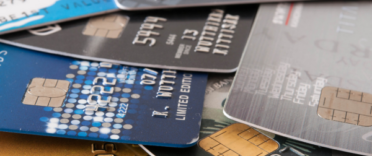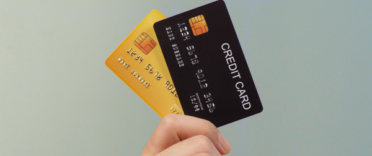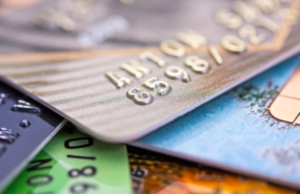
If you have never had a credit card or any other form of credit, it’s unlikely you’ll have much of a credit history. As a result, your credit score is likely to be low. In this guide, we take a look at how to apply for your first-ever credit card and the best types of credit card available. Used with care, a credit card can help you manage your finances and build up a credit history which can be beneficial if you apply for other types of credit in the future.
What is a first time credit card?
Never having had a credit card before can make it much harder to get accepted for a credit card, particularly those with competitive interest rates or those that offer incentives such as cashback and other rewards. However, that doesn’t mean you won’t get accepted for a credit card at all. There are providers that offer cards designed to help newbies build up a credit history, earn rewards points and spread the cost of purchases.
Find out which first-time credit card is best for you
You can use Money to the Masses partner Creditec* to quickly build a list of the credit cards that match up with your needs. By simply adding in a few basic details, you will get a tailored collection of the best credit cards for you. You can use your Creditec results to check how likely you are to be accepted for a certain card, which cards available to you offer the best rewards or find out what option will leave you with the lowest fees to pay. Creditec is able to check your eligibility without running a full credit check, which means your credit score will not be affected. Click this link to start your comparison*.
Best first-time credit cards - January 2025
Below we have compared 3 of the top credit cards for first-timers, one of which is best suited to students.
| Card | Representative APR (variable) | Credit limit | Minimum annual income | Eligibility | Benefits |
| Barclaycard Forward Credit Card - Check eligibility | 33.90% | £50 - £1,200 | £3,000 | Must not have been bankrupt in past 6 years and cannot have more than one CCJ | 0% on purchases for three months. |
| Capital One Classic Credit Card - Check eligibility | 34.90% | £200 - £1,500 | N/A | Must not have been bankrupt in last 12 months but may be considered if had previous CCJs | Up to two optional credit increases per year |
|
Tesco Bank Foundation Credit Card - Check eligibility |
29.90% | £200 - £1,500 | N/A | You can check your eligibility without affecting your credit score using the Tesco Bank eligibility checker | 5 Tesco Clubcard points for every £4 spent in Tesco, 1 point for every £8 spent elsewhere |
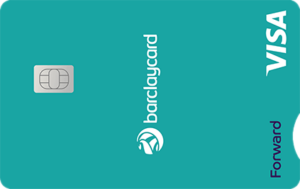
- Credit limit between £50 and £1,200
- 0% interest on purchases for three months from account opening
- Free Apple subscriptions for up to 5 months
- Minimum annual income of £3,000 required
- Minimum monthly repayment of the greater of £5 or a % of your account balance plus interest (% amount varies depending on credit balance)
- 33.90% Representative APR
- 3% interest rate reduction if you make all your payments on time for the first year, then 2% interest rate reduction if you make all your payments on time for the second year
You can read more on the Barclaycard website.
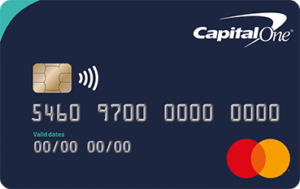
- Credit limit between £200 and £1,500
- Up to two credit limit increases per year, subject to eligibility
- No annual fee
- Minimum monthly repayment of 3% of the outstanding balance plus interest or £5 (whichever is greater)
- 34.90% Representative APR
You can read more on the Capital One website.
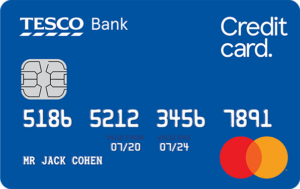
- Credit limit between £200 and £1,500
- No annual fee
- Minimum monthly repayment of 1% of the outstanding balance plus interest or £25 (whichever is greater)
- 29.90% Representative APR variable
Read our full review: 'Tesco Foundation credit card review'.
How to make the most of your first credit card
The key to making the most of your credit card is to utilise the main feature of that card efficiently. That could be earning cashback, building up rewards points, consolidating debt through a balance transfer or spreading the cost of a purchase. You could also use a credit card to build a credit score, allowing you to access better cards and more borrowing options in the future.
The major pitfall to avoid is using a credit card in the wrong way. This could be using a 0% purchase credit card for a money transfer, spreading the cost of a purchase using a rewards card or transferring a balance with a cashback credit card. This will likely prove very expensive and land you with high fees and interest charges that you could have avoided by picking the right card for the job in the first place.
What to consider before you get your first credit card
Before you apply for a credit card, it’s a good idea to check your credit score yourself. You can do this free of charge through services such as MSM Credit Monitor, Credit Karma and Clearscore. Checking your credit score should give you a good idea of how likely you are to be accepted for a credit card, but these services will also tell you what you could improve on to help increase your credit score.
Simple steps to boost your credit score include registering on the electoral roll, paying bills on time and correcting any errors on your report. It can be worth making some of these changes and then waiting a little while to see if this helps your credit score. You can read more in our article ‘How to improve your credit score quickly’.
You can also use an eligibility checker, which runs a ‘soft’ search on your credit file and estimates the chances of you being accepted for a particular credit card. Soft searches do not leave a mark on your credit record like a ‘hard’ search would, so it won’t affect your chances of getting accepted for credit. Using an eligibility checker means you are less likely to apply for credit cards you won’t be accepted for, which will help to protect your credit score.
Pros and cons of first-time credit cards
Here are the main pros and cons of getting your first credit card:
Pros of first-time credit cards
- You can build up a credit history which will improve your chances of getting accepted for other types of credit in the future, including a mortgage.
- You can buy items upfront without paying for them immediately.
- If you qualify, you may benefit from cashback and other rewards.
- All purchases costing more than £100 and less than £30,000 are protected by Section 75 of the Consumer Credit Act. This means if your purchase is faulty or doesn’t turn up, or the company goes bust, your credit card provider is jointly liable with the retailer and you’ll be able to seek compensation.
Cons of first-time credit cards
- Many credit cards charge high rates of interest so it’s best to clear your balance in full each month.
- It can be easy to spend more than you can afford to pay back, meaning debt can rapidly build up.
- If you don’t make your repayments on time each month, or you exceed your credit limit, you will have to pay a fee and this can also affect your credit score.
- Withdrawing cash on your credit card can be very expensive.
Alternatives to a first-time credit card
A loan is an obvious alternative to a credit card if you are looking to borrow money. Like a credit card, a loan involves borrowing money and paying back what you owe, plus interest. A loan is more likely to be suited to one-off big purchases or debt consolidation. A credit card is probably your best option if you want to borrow for everyday spending or to earn rewards. We go into more detail in our article ‘Is it better to get a credit card or a personal loan?’. If you decide that a loan is the right option for you, make sure you know the difference between the two main types. Read our article ‘Secured vs unsecured loans: Which is best for me?’ to learn more.
You could choose not to borrow any money at all. If you already have cash in your current account, simply spending on your debit card could be a good option. There are lots of benefits to using debit cards for everyday spending, including cashback, rewards and sign-up incentives. You can also avoid the possibility of getting yourself into problematic debt, being charged for cash withdrawals and having to pay interest. Read our article ‘Best bank account switching offers, cashback & incentives’ to see what options are available.
If you want to borrow money without using a credit card, you could consider adding an overdraft facility to your current account. This can be a good short-term option without having to go through the credit card application process. However, not everyone will be approved for an overdraft and it can cost you additional monthly fees and charges.
A prepaid card can be a useful budgeting tool if you are concerned about borrowing money. With a prepaid card, you can usually only spend the amount of money loaded onto the card. Though this can be limiting when it comes to big purchases or emergencies, it will make you less likely to fall into debt. We have more information in our article ‘A complete guide to prepaid cards - which is the best for you?'.
If a link has an * beside it this means that it is an affiliated link. If you go via the link, Money to the Masses may receive a small fee which helps keep Money to the Masses free to use.





